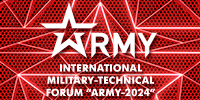The past year has posed a number of challenges for Russia that have not been approached as critical before. It is already clear now that if the country intends to preserve its economical independence it can not do without import substitution.
Text: Oleg Bystritsky
Complex of inevitabilities
As the international cooperation continued to develop, the country’s military leadership has ceased to see threats in purchasing import armaments and component parts during the last years. Though, the deliveries of import equipment to the branches allied with the defense industry have since long become a routine practice.
The country was pushed towards such decisions by the technological weakness apart from the political necessity. “Unfortunately, we have fallen to such position, when the country had a clear orientation towards Western countries during the last years hoping that all the necessary technologies would be provided therefrom”, stated Vladimir Ivanov, Vice President of RAS, Executive Secretary of CC at the Forum “Technodoctrina”.
“Speaking frankly and openly, Russia is not presently the center of technological attraction or technological thought owing to a simple reason that everything is controlled from the point of view of infrastructure, let us call things by their proper names, from the United States”, revoices Dmitry Marinichev, President of Radius Group company. Indeed, the expert clarifies that China also does not possess the breakthrough technologies. “It optimizes technologies in one way or another, while in the context of infrastructure they are possessed presently by the United States”, sais Dmitry Marinichev.
The more acutely the domestic military-industrial complex has perceived the information about imposing economic sanctions on our country in March 2014. “Sanctions show just the reverse side of our internal sensitivity, perilous disparity between a potential and the level of military and political sovereignty of the country on the one hand and its economic and technological sovereignty on the other hand”, acknowledges Mikhail Remisov, President of the National Strategy Institute, Chairman of the Presidium of the council of experts at the college of the Military-Industrial Commission.
Balanced approach is required
Today, when the emotional intensity of talks around sanctions has calmed down, some declarations pronounced in passion are perceived as unnecessarily categorical ones. Nevertheless, nobody doubts a necessity of progressive import substitution of any models of equipment of foreign make.
It is a different story that this process shall take place after careful consideration and without a least detriment to the country’s defense potential. “A reasonable import substitution is our long-standing priority irrespective of the circumstances”, said Vladimir Putin, the President of the Russian Federation addressing the Federal Assembly.
Moreover, there is no need for haste at solving the tasks of import substitution due to a fact that the situation is far from being critical. The preemptive part of European business partners does not hurry to obey the fancies of their politicians. For instance, at the end of November Michael Harms, Chairman of the Board of the German-Russian Chamber of Commerce, announced publicly that after imposing sanctions not a single big German company refused to cooperate with the Russian companies. Every other company of three German companies working in Russia considers this direction to be a strategic one.
The similar declarations have been repeatedly heard from the entrepreneurs of the other European countries. In this context a chance emerges for Russia to implement a balanced modernization program.
“We can not allow to ourselves a lack of focus for our scientific and technical policy, which has been observed with us over the past years”, said Mikhail Remisov.
As it was emphasized by the Head of the council of experts of the Military-Industrial Commission, we all understand that the economical and technological sovereignty is at the lower level than military and political one. In the course of the nearest years we have to narrow this gap. In this case the pressure from sanctions will get reduced, while Russia will defend its place in the club of countries enjoying real sovereignty.
Beginning not from zero
“The trouble is that we are prone to come-and-go manner: like, let us now force import substitution into application everywhere. Somewhere it works, somewhere – it does not. It is a tool that is to be treated quite critically and rationally”.
Alexey Ulyukaev, Minister of Economic Development of the Russian Federation
Let us add that a necessity of import substitution is explained not only by the political situation and technical weakness.
This process is commonly required by the domestic manufacturers, since it will help deliver the hi-tech produce with high added value. Simply said, the import substitution promises a good few of profits, which is crucially important for the domestic industrialists under conditions of economic stagnation.
There is no deficiency of development vectors. Ilya Sidorov, Deputy Director General of Foundation for Advanced Studies, explains, “I would like to identify those directions, where we are looking for new cadres. It involves an artificial intellect, cyber safety, detection technology, digital production, intellectual weapons, advanced underwater technologies, bionics, advanced health care, integral bio-systems, new methods of energy derivation”.
At that, owing to the unfavourable macroeconomical trends the domestic manufacturers have no other way out, except for increasing efficiency of production and management.
“Modernization of production is not a mere insertion of some new machine tools into the same jigsaw puzzle spaces, this approach is not only technological but managerial and social as well”, reasons Alexey Zharich, Deputy Chief Executive Officer of UralVagonZavod Corporation. “It is the forming up of all the processes (business and production) in an absolutely different way”.
Otherwise it is impossible to survive. And, by the way, the Russian produce features one evident advantage already at the starting point. A necessity to include the customs and excess transportation charges into the final price lapses.
Moreover, a number of industry leaders implement their own import substitution programs for a couple of years already.
Tikhvin Freight Car Building Plant (TVSZ) can be put forward as an example. In 2010 the plant designers developed together with North-American specialists the designs of new-age cargo wagons and innovative trolley Barber S-2-R for the Russian market. By the present day only 5 units out of more than 4, 000 component items are imported. The full localization will be finished this year.
The multipurpose amphibian Bе-200 developed by Beriev Aircraft Company has already managed to interest the buyers from Indonesia, the European Union and even the USA.
Stumbling blocks
At the same time it would be wrong to declare that there are no objective difficulties on the way of import substitution. Indeed, as a result it will be necessary to provide the quality of goods and articles comparable with the international examples and even surpassing them. So, according to Sergey Belets, TVSZ representative, more than 70% of suppliers have flunked out during the time of looking for domestic analogs.
In general, the staffing problems are put forward ultimately rigidly within military-industrial complex. A system of military-industrial complex suffers the impressive credit indebtedness. The labour productivity leaves much to be desired. Only just now the work has been started on creating a unified document governing the price-formation in the military-industrial complex.
At that, the defense industry is also under pressure of the problems common for the Russian business. In particular, Roman Titkov, Director General of Dalpribor, addressed the Russian President at the plenary meeting of the “Action Forum” of the All-Russia People’s Front that took place at the end of the last year with the suggestions about changing order of communication between a business community and power representatives in the field of lawmaking.
As it has been enumerated by the manufacturer, the Russian industrialists have little abilities for influencing the legislative proposals concerning a sphere of business, despite of participation in public discussions. The business is also under pressure of high taxation level and unaffordable credit rates for domestic manufacturers. Finally, the hands-on experience is unacceptable with respect to time limits of closing contracts in the sphere of military-industrial complex. Normally, it happens with a significant delay.
On the other hand, as it was calculated by Marfa Zavodchikova, Vice-President of Interregional Public Office “Institute of Engineering Physics”, fifteen state programs within a framework of about forty programs are subdued today exceptionally to the technological re-equipment policy. “There are individual investment innovational programs of enterprises, concerns, the number thereof is also about 50”, clarifies the expert. “There are particular projects implemented at particular enterprises”.
Let us stress that the matter cannot rest with the existing flows of funding. The new programs of import substitution are being launched continuously, for instance, under the auspices of the Commission of the Community council as to supporting import substitution of industry in Russia at the Ministry of Industry and Trade.
We have enough money. We cannot but hope that it will be spent efficiently.








